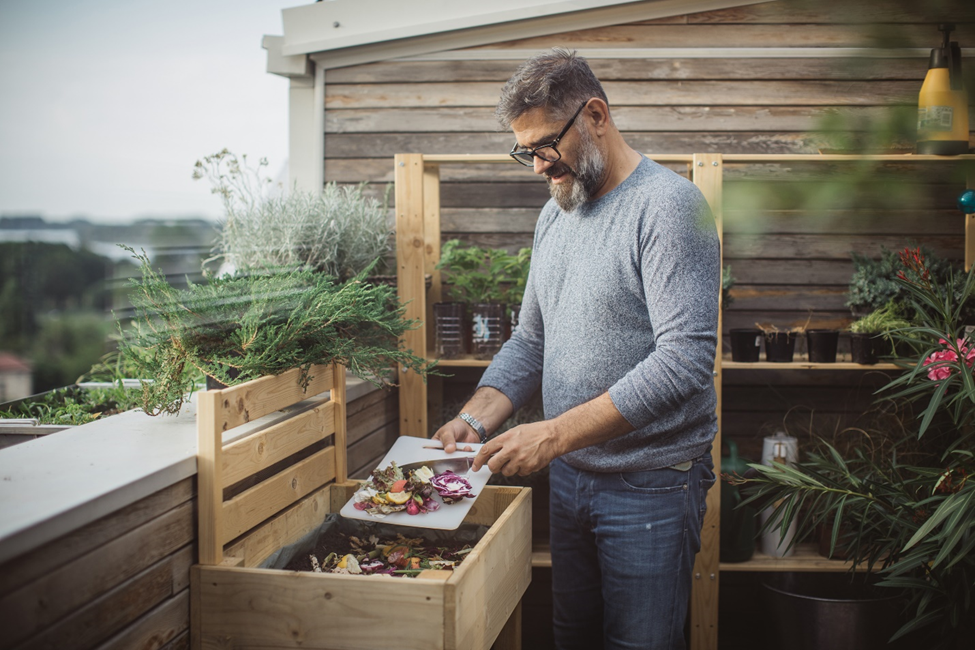It can be challenging to understand the impact our food waste and diet have on our environment. From preserving our foods to planning out our meals there are many steps we can take to reduce our food waste. In honor of Food Waste Prevention Week, April 1- 7, lets dig in to yet another form of food waste reduction: composting! Though composting has often been viewed as difficult or as an advanced way to stop food waste from entering the landfill, Extension offers some beginner friendly tips!
What is Composting?
The Environmental Protection Agency defines composting as the controlled aerobic (with air) biological decomposition of organic materials. The process requires turning over the material to provide air to the bacteria which often produce a smell as they work. For us non-experts, composting is the process of breaking down organic materials, including some of our food waste, at a much faster rate due to the heat of decomposition. West Virginia Extension notes that “when done properly compost can go from start to finish in as little as three months.” At the end of the composting process, you have a rich, smell free, earthy substance referred to as compost, which is great for our gardens and flower beds
How do I get started composting?
The basics of every compost pile, no matter the size, is to have the correct ratio of green to brown materials. Green materials are rich in the element nitrogen and often refers to grass, food waste, coffee grounds, etc. Brown materials are carbon rich which includes twigs, paper, cardboard, etc. The green to brown materials ratio can vary widely depending on your type of compost, but tips to help you get started are universal.
As you get started, it’s important to look for a few things in your compost:
1. Keep your compost pile wet!
Adding water allows for the decomposition process to avoid those nasty smells and speed up the process. According to the Natural Resource Defense Council, it should feel like a wrung-out sponge!
2. Check the compost temperature!
The larger the pile the hotter the temperatures!! The increasing temperature is what allows your compost to breakdown organic material faster. For the first few days 140 degrees is recommended, but anything beyond 160 degrees produces charring.
3. Be sure to turn over your compost pile!
Air is another vital ingredient to allow your compost to digest. Make sure to turn it once a week over the summer and once every few weeks in the winter.
4. Keep working at it !
It can be challenging to start, but keeping at it is a great way to reduce your food and over all waste
Resources
Bennett, Amanda. 2021 “Composting at Home.” OSU Extension Publishing. Accessed April 2, 2024. https://ohioline.osu.edu/factsheet/hyg-1189-99
Hu, Sheila. 2020. “Composting 101.” What is Composting? Natural Resources Defense Council. https://www.nrdc.org/stories/composting-101.
Morrow, Emily. 2020. “Composting for Beginners.” West Virginia Extension. Accessed April 2,2024. https://extension.wvu.edu/natural-resources/soil-water/composting-for-beginners
United States Environmental Protection Agency. n.d. “Composting at Home.” Accessed September 24, 2021. https://www.epa.gov/recycle/composting-home.
Writer: Ryan Kline, Extension Educator, 4-H Youth Development and Family & Consumer Sciences, Ohio State University Extension, Ross County, kline.375@osu.edu
Reviewer: Misty Harmon, Extension Educator, Family & Consumer Sciences, Ohio State University Extension, Perry County, harmon.416@osu.edu

